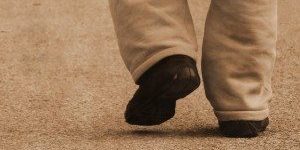Tips for Alcohol Recovery: A Christian Perspective
Christian Counselor Spokane
For many people, a “rite of passage” into adulthood includes becoming old enough to drink alcohol. But for many of those people, drinking alcohol doesn’t stop with that first drink.
 Drinking alcohol seems harmless, at first. You’re at a party, wanting to have fun, you drink a beer; you’re tired from a long workday and have a glass of wine to unwind; you’re struggling through some life challenges; you’re feeling lonely, sad, confused; you have one drink, just to get your mind off life for a while.
Drinking alcohol seems harmless, at first. You’re at a party, wanting to have fun, you drink a beer; you’re tired from a long workday and have a glass of wine to unwind; you’re struggling through some life challenges; you’re feeling lonely, sad, confused; you have one drink, just to get your mind off life for a while.
You’re on a first date; you’re a little nervous, so you order just one cocktail before your date gets there, to take the edge off your nerves and give you a little confidence. For many people, this is how alcoholism starts; that “one drink” leads to another, then another, and before you know it, you’re completely dependent upon alcohol to get through the day.
Alcoholics cannot control their desire to drink alcohol. They drink excessively and are obsessed with having that next drink. Alcoholics become dependent upon alcohol, both emotionally and physically. Because of this addiction, alcoholics continue to drink excessively, despite the plethora of negative effects it has on their lives.
In the US, alcoholism is extremely common, with 6.2% of the population reporting an alcohol use problem. That’s 15.1 million people! Sadly, 3.3 million people, worldwide, die as a result of the overuse of alcohol.
For the alcoholic, overusing alcohol can cause all kinds of problems. Many alcoholics have trouble keeping a job, while others are unable to cope with family dynamics or social situations in a healthy manner. Many people who consume too much alcohol feel shame and withdraw from relationships in order to keep their addiction secret.
While overconsumption of alcohol can and does lead to alcohol addiction, not all people who drink excessively become addicted to alcohol. These people abuse, or misuse, alcohol. While alcohol abusers may not be addicted to alcohol, this abuse can still cause many issues. Many people who abuse alcohol do become addicted later in life.
While it is not known exactly who or when a person becomes an alcoholic, we do know that regularly consuming alcohol disrupts the balance of gamma-aminobutyric acid (GABA) and glutamate in the brain; GABA controls impulsivity, while glutamate stimulates the nervous system.
Also, dopamine levels in the brain rise when alcohol is consumed, making the experience of drinking more satisfying. Over time, months for some and years for others, excessive alcohol use significantly alters these chemicals in the brain, causing the body to crave more and more alcohol.
Other risk factors include:
- Genes. People may have certain genes that make addiction more likely. This can be seen in a family history of addiction.
- Beginning drinking age. Studies suggest that people who start drinking before the age of 15 may be more likely to overuse and abuse alcohol.
- Easy access. The price of alcohol and its availability has been linked to the abuse of alcohol.
- Stress. Some stress hormones are connected to alcoholism. When a person is highly stressed and/or anxious, drinking alcohol can be an attempt to block these feelings out.
- Peer drinking. People who socialize with people who drink excessively are more likely to drink excessively themselves.
- Low self-esteem/depression. People often self-treat feelings of sadness, worthlessness, and other negative feelings with too much alcohol.
- Media. In today’s society, we are bombarded with pictures, TV shows, movies, and music that hold consuming alcohol up as glamorous, fun, and cool.
Signs of Alcoholism
If you are concerned for yourself or someone you know in regard to alcoholism, there are some signs and symptoms to look for:
- Drinking alone or in secret
- The inability to control alcohol consumption
- Blacking out or losing periods of time after drinking
- Always drinking at certain times or for certain occasions (ie drinks before meals, during meals, after work)
 Losing interest in life-hobbies, family, etc
Losing interest in life-hobbies, family, etc- Urges to drink
- Feeling irritated when alcohol is not available
- Storing alcohol in strange or unlikely places
- Problems with relationships, police, finances, or work that stem from drinking
- Needing more alcohol to feel its effect
- Sweating, shaking, or feeling nauseous when not drinking
Alcoholism not only affects the alcoholic; alcoholism takes a toll on all of the people in an alcoholic’s life-family, friends, coworkers, neighbors, and others. Often, people in an alcoholic’s life feel helpless as to how to help their loved one and feel hopeless as to whether or not an alcoholic loved one can be saved.
Hope for Alcohol Recovery
But, there is help. You can stop drinking! Although alcoholism cannot necessarily be cured, it can be treated. Alcoholics Anonymous, an international organization of peer support groups, claims a 50% success rate in patients who receive alcohol treatment and/or alcohol counseling through their organization, alone.
For the Christian, alcohol recovery is even more possible and successful! As Christians, we believe in and serve a God of the impossible! In Matthew 19, we find the story of the rich young ruler, who wanted to follow Jesus.
However, this young man went away, sad, when Jesus told him that in order to follow Him, the young man must give up everything. This instruction astounded the disciples, who stood by listening, and they began to ask Jesus, “If this man can’t be saved, then who can be saved?” Jesus looked at the disciples and replied, in Matthew 19:26, “With God, everything is possible.”
Everything is possible. If you or someone you love is struggling with alcohol abuse, there is hope, there is recovery, there is help. Will it be easy? No. Will changes in lifestyle have to be made? Yes. But, we serve a God who can do anything in our lives – anything! God is waiting for you to come to Him with this problem, this addiction. His strength in and through you makes alcohol recovery possible.
According to Madueme (2020), many complain that our culture is too beholden to biological psychiatry and genetic reductionism. Much of the discussion on addiction forms part of this cultural background. Thus we inherit or even construct, different ways of thinking about ourselves, about health and disease, about weal and woe.
But not every popular assumption is the truth. The concern of many Christians, myself included, is the tendency to “medicalize” behavior, such that sin and vice become addiction and disease. This need not be unduly conspiratorial or atavistic.
The point is that an older generation was far more likely, on balance, to understand itself and its social world in terms of sin and virtue, vice and godliness. Lack of self-control and weakness of will, for instance, were moral failings to be avoided (with divine help). That sort of language has fallen on hard times. Perhaps there have been attendant gains, but there have also been losses.
What we may have lost is a truer sense of our world’s moral texture. The modern discourse of addiction commits us to specific ways of understanding our world and our selves. It has assumptions about whether (and how) my neighbor, or even God, makes moral claims on me, and what – if anything – can be done about it.
These are not trivial issues [1]. The relationship between addiction and the Christian doctrine of sin is our interest here. Christian theologian Cornelius Plantinga gives us a helpful definition of sin:
“Let us say that a sin is any act – any thought, desire, emotion, word, or deed – or its particular absence, that displeases God and deserves blame. Let us add that the disposition to commit sins also displeases God and deserves blame, and let us therefore use the word sin to refer to such instances of both act and disposition” [2].
Christian Perspective on Addiction
What then is a Christian attitude towards addiction? Do we condemn addicts because of sinful habits, or are they morally blameless for something beyond their control [3]? To put the question this way is already to invite criticism. In a culture awash in Internet gambling, lotteries, horse racing, food, and sex, it seems harsh to suggest that addicts are to blame for their misery. Glib moralisms are indeed insensitive and naive.
 And yet we must take sin seriously. As we suggested, popular discourse often deploys addiction as the explanatory panacea for all kinds of besetting sin and vice. Addiction brain science itself can quickly undermine, or qualify, confidence in traditional views of moral responsibility.
And yet we must take sin seriously. As we suggested, popular discourse often deploys addiction as the explanatory panacea for all kinds of besetting sin and vice. Addiction brain science itself can quickly undermine, or qualify, confidence in traditional views of moral responsibility.
The American Society of Addiction Medicine, for instance, describes addiction as a “primary, chronic, neurobiological disease, with genetic, psychosocial, and environmental factors influencing its development and manifestations” (emphasis added) [4]. This need not entail reductionism, especially when addiction is nuanced as “a polygenic disorder that results from interactions between the environment and the effects of a large number of genes, each with a small effect” [5].
Our neuroscientific age, however, raises the reductive questions in a sharp way [6], and I personally worry that the idiom of biological psychiatry exerts an undue influence on addiction research [7]. In any case, it seems hard to deny that the cumulative social and cultural effect of addiction research, rightly or wrongly, calls into question the Christian doctrine of sin.
This doctrine entails a robust notion of moral responsibility or culpability; God is pleased or displeased with us. Catching a cold is a very different thing from coveting my neighbor’s wife; the latter is sin, the former is not. But many addicts feel as if they do not have voluntary control of their behavior.
If sins are understood only as self-conscious and high-handed acts (like premeditated murder, rape, or lying), it seems wrong to call addiction sin. Yet, as Edward Welch points out, sin is also a much broader, more insidious, and enslaving condition [8]:
“In sin, we are both hopelessly out of control and shrewdly calculating; victimized yet responsible. All sin is simultaneously pitiable slavery and overt rebelliousness or selfishness. This is a paradox to be sure, but one that is the very essence of all sinful habits” [9].
The relationship between sin and addiction is like the overlapping circles of a Venn diagram. In the smaller, nonoverlapping areas of the circles, we have addictions that involve no sin (e.g., a baby affected by intrauterine cocaine addiction [10]) and sins that have no addictive component (e.g., cheating on my yearly income tax). In most other instances, sin and addiction are coextensive [11].
“Addicts are sinners like everybody else,” Plantinga reminds us, “but they are also tragic figures whose fall is often owed to a combination of factors so numerous, complex, and elusive that only a proud and foolish therapist would propose a neat taxonomy of them.”
There must be no trace of “typically judgmental and typically permissive accounts of the relation between sin and addiction: we must say neither that all addiction is simple sin nor that it is inculpable disease” [12]. Such discriminating calls for wisdom and humility.
Now to the main question: Is it possible for addiction research to be happily integrated with Christian perspectives on sin? Here we wade into complex territory. Part of the problem is sociological; addiction research is advocated, discussed, and applied in secular clinical and institutional settings, whereas Christian theology is rooted in churches and seminaries.
The other problem is deeper; addiction scientists often may not share the same metaphysical or theological assumptions as the Christian community. So genuine conversation is difficult. One way to begin dialogue is to observe that addiction per se does not rule out moral responsibility. Many Christians would argue that we can assign the addict responsibility proportional to the voluntary dimension of his actions, recognizing mitigating factors (e.g., impaired judgment).
Other Christians [13] instead would emphasize that you are still responsible for those early binges that triggered your current alcoholism; addictions are ultimately more about our own idolatries than about mitigated responsibility [14]. In any case, virtually all Christians agree that medical and psychiatric professionals can and should help genuine addicts back onto a path of recovery [15].
 This gives a clearer picture of the devastating nature of sin – not only does it enslave us spiritually, but it can also enslave us physically. If health care professionals can broadcast this message, one poignant effect may be a prophylaxis for our youth: “Go home, and sin no more.”
This gives a clearer picture of the devastating nature of sin – not only does it enslave us spiritually, but it can also enslave us physically. If health care professionals can broadcast this message, one poignant effect may be a prophylaxis for our youth: “Go home, and sin no more.”
In the words of St. Augustine, “you have made us for yourself, and our heart is restless until it rests in you” [16]. By that, he meant that all human beings yearn for communion with the living God. We are designed to think, speak, and live in the presence of God. But Augustine also observed our sinful plight; we generally seek happiness apart from God. Our tragedy is that we love the wrong things, or we love the right things disproportionately and are ultimately enslaved by those loves.
Our words and actions, our thoughts and imaginations, consistently fall short of the holiness of the Lord. And those of us who claim to be Christians are also guilty—no one is morally blameless—and despite our most valiant efforts, we sin daily.
The irony is that Christians, in the spirit of Augustine, believe both in moral responsibility and in our (ultimate) moral inability. In a metaphorical idiom, we are all addicts. The experience of addiction is thus not far from any one of us. There’s no room for judgmentalism. In short, we all need redemption.
The Bible is full of help when we struggle. Here are some verses that might be helpful to read daily and even memorize while you are working towards alcohol recovery:
So Christ has truly set us free. Now make sure that you stay free, and don’t get tied up again in slavery to the law. – Galatians 5:1
Don’t be drunk with wine, because that will ruin your life. Instead, be filled with the Holy Spirit. – Ephesians 5:18
Confess your sins to each other and pray for each other so that you may be healed. The earnest prayer of a righteous person has great power and produces wonderful results. – James 5:16
The temptations in your life are no different from what others experience. And God is faithful. He will not allow the temptation to be more than you can stand. When you are tempted, He will show you a way out so that you can endure. – I Corinthians 10:13
Don’t be fooled by those who say such things, for “bad company corrupts good character.” – I Corinthians 15:33
So humble yourselves before God. Resist the devil, and he will flee from you. – James 4:7
In His kindness God called you to share in His eternal glory by means of Christ Jesus. So, after you have suffered a little while, He will restore, support and strengthen you, and He will place you on a firm foundation. – I Peter 5:10
Then call on Me when you are in trouble, and I will rescue you, and you will give Me glory. – Psalm 50:15
And we are instructed to turn from godless living and sinful pleasures. We should live in this evil world with wisdom, righteousness, and devotion to God. – Titus 2:12
For I can do everything through Christ, who gives me strength. – Philippians 4:13
We are here, too, ready to help. You can quit drinking; your life and loved ones can be restored; your life can have meaning and joy again. Make the call today that can change your life and set you on the road to alcohol recovery.
References
- In Christian theology, these assumptions relate, roughly, to ontology, anthropology, hamartiology, and soteriology.
- Plantinga C Jr. Not the Way It’s Supposed to Be: A Breviary of Sin. Grand Rapids, MI: Wm. B. Eerdmans; 1995:13. Google Scholar
- The question is posed rhetorically; there are other graded options between these two examples.
- American Academy of Pain Medicine, the American Pain Society, and the American Society of Addiction Medicine. Definitions Related to the Use of Opioids for the Treatment of Pain. Accessed November 10, 2007.
- Hall W. Avoiding potential misuses of addiction brain science. Addiction. 2006;101(11):1530. View Article PubMed Google Scholar
- For one discussion in the area of law, see Rosen J. The brain on the stand. New York Times. March 11, 2007. http://www.nytimes.com/2007/03/11/magazine/11Neurolaw.t.html?pagewanted=1&ei=5070&en=1e6478172091cfdd&ex=1175918400. Accessed November 20, 2007.
- For an illuminating critique of biological psychiatry, from a biopsychosocial perspective, see Ross CA, Pam A. Pseudoscience in Biological Psychiatry: Blaming the Body. New York, NY: John Wiley & Sons; 1995. A Christian theologian wants to say much more than this.
- Welch ET. Addictions: A Banquet in the Grave: Finding Hope in the Power of the Gospel. Phillipsburg, NJ: P&R Publishing; 2001:32-36.
- Welch, 34.
- This example does not mean to deny that the mother, broader family, and others, are sinfully implicated in this situation. My point is that the baby is not responsible for any ensuing cocaine addiction.
- Plantinga, 144.
- Plantinga, 140.
- One can hardly point to a consensus, but there is some overlap in the way different Christian groups understand addiction.
- Although this diagnosis can be construed as overly harsh, proponents argue that it actually ennobles and humanizes persons. For a pastoral attempt to make this case, see Welch ET. Addictions: A Banquet in the Grave: Finding Hope in the Power of the Gospel.
- For a dissenting (and iconoclastic) opinion, see Dalrymple T. Romancing Opiates: Pharmacological Lies and the Addiction Bureaucracy. New York, NY: Encounter Books; 2006. But see the assessment in Harris L. Drug addiction and the open society. The New Atlantis. 2007;17:79-94. http://www.thenewatlantis.com/archive/17/harris.htm. Accessed November 20, 2007.
- Saint Augustine. Confessions. Chadwick H, trans-ed. Oxford: Oxford University Press; 1998:1,1,1.
Citation
Madueme, H. Addiction and Sin: Redemption and Recovery in AMA Journal of Ethics. Available online: https://journalofethics.ama-assn.org/article/addiction-and-sin-recovery-and-redemption/2008-01
“Leave in the Stream”, Courtesy of Wassim Chouak, Unsplash.com, CC0 License; “Winter Bird”, Courtesy of Jeffrey Perry, Unsplash.com, CC0 License; “Wildflowers”, Courtesy of Dana Luig, Unsplash.com, CC0 License; “Dried Flowers”, Courtesy of Gregory Gregory, Unsplash.com, CC0 License





